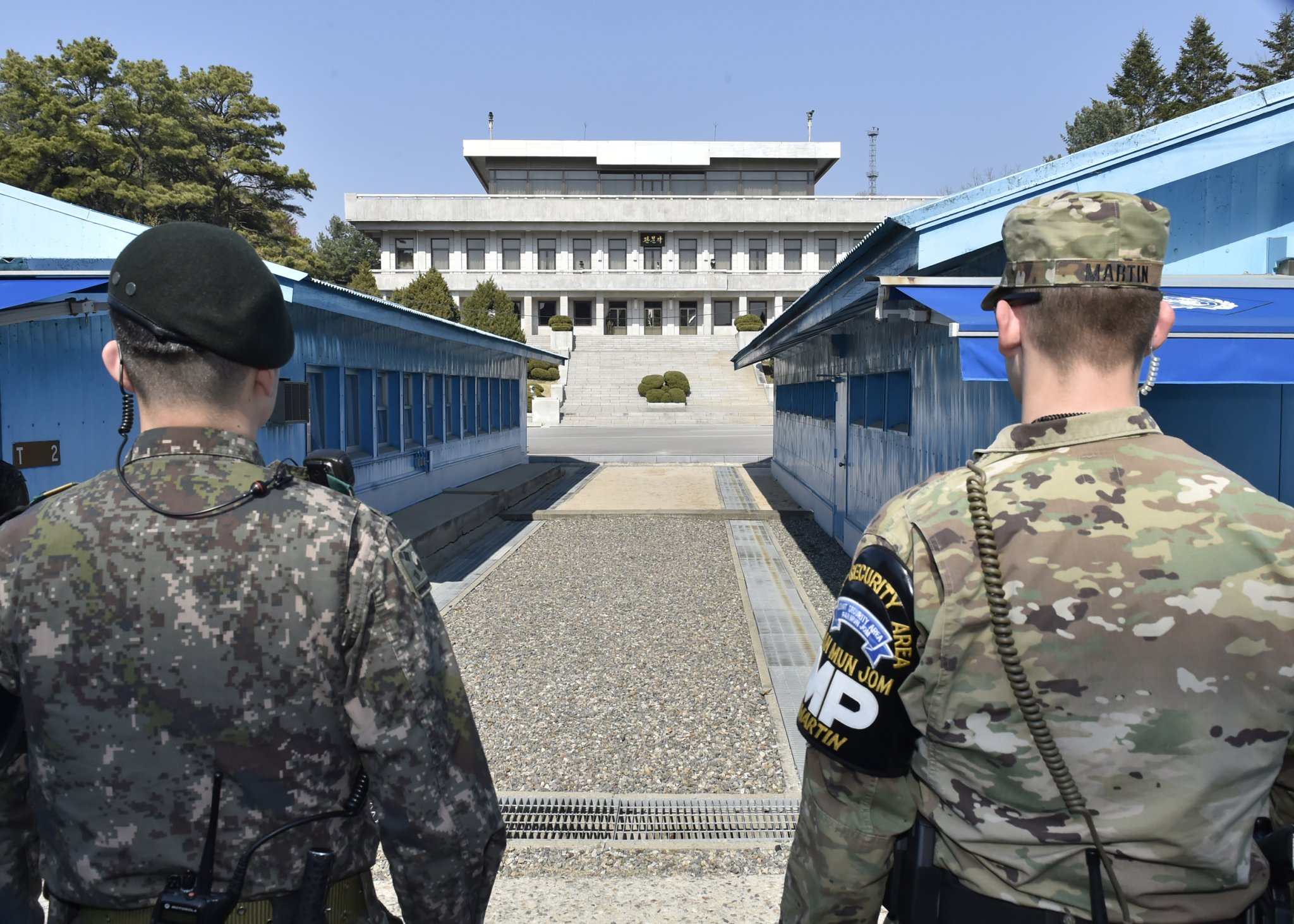

The United Nations Command in South Korea announced Monday that it is in communication with North Korea regarding the U.S. Army soldier who crossed the Demilitarized Zone last week, becoming the first American service member to defect since 1982.
The deputy head of the U.N. Command, British Army Lt. Gen. Andrew Harrison, said at a Monday news conference in Seoul that the discussions had taken place, although he declined to elaborate on what they entailed, how long the command had been in contact with North Korea, or what the condition of that soldier was, according to the Associated Press.
Subscribe to Task & Purpose Today. Get the latest military news and culture in your inbox daily.
“None of us know where this is going to end,” Harrison said during the briefing. “I am in life an optimist, and I remain optimistic. But again, I will leave it at that.”
The soldier, Pvt. Travis King, “willfully and without authorization” crossed into North Korea at the Joint Security Area (JSA) at Panmunjom on July 18, according to a U.S. Army statement.
King, according to the Army, was a cavalry scout assigned to the 6th Squadron, 1st Cavalry Regiment, 1st Brigade Combat Team, 1st Armored Division. After that assignment, he was moved to the 1st Battalion, 12th Infantry Regiment, 2nd Brigade Combat Team, 4th Infantry Division.
Before then, King had reportedly been detained in South Korea on assault charges and was due to return to Fort Bliss, Texas, to face administrative action and a discharge. Before that flight, though, he apparently made his way to the JSA and, during a tour, crossed into North Korea. He had reportedly enlisted in January 2021 and served on no combat deployments and had received, according to the Army.
Since then, communications regarding the soldier have been few and far between. North Korea itself has not offered any public comment on the matter. U.S. officials have said they hope for the quick return of King, but little else. His family has largely declined to comment, offering only that, “We are grateful for the outpouring of support and concern for our son, Travis King. At this time, we request privacy as we work toward our son’s safe return.”
Many U.S. service members have defected to North Korea since 1953. More than 20 did so after the initial armistice – which ended the fighting but did not actually end the conflict. Six more did so in the intervening decades before King.
Like King, several of those subsequent defectors did so while facing military punishment.
Army Pvt. Larry Abshier was stationed in South Korea in 1962, but had been caught using drugs several times and was facing a court-martial. That same year, another Army private also facing a court-martial, James Dresnok, crossed into North Korea.
“I was fed up with my childhood, my marriage, my military life, everything,” he said in the 2006 documentary Crossing the Line. “There’s only one place to go.”
Another deserter, Sgt. Charles Jenkins, later wrote in an autobiography “I know I was not thinking clearly at the time and a lot of my decisions don’t make sense now, but at the time they had a logic to them that made my actions seem almost inevitable”
Jenkins would later return to Japan and, in 2004, surrender himself to U.S. military justice, where he still, decades later, had to be processed for a discharge and spend a month in a military jail.
King’s actions, then, once again bring up the question of his duty status. The Department of Defense confirmed that he is currently listed as Absent Without Leave – AWOL.
“The level of punishment is based on the number of days he is gone under his own volition,” said Rachel Van Landigham, a former Air Force Judge Advocate officer who now teaches at Southwestern University. “When is he truly being held against his will?”
“Article 85 of the UCMJ [Uniform Code of Military Justice] describes anyone who ‘quits his unit, organization, or place of duty with intent to avoid hazardous duty or to shirk important service’,” Van Landigham added.
So, while King’s actions may seem like something to joke about – imagine the NCO who has to deal with this –The actual and eventual outcome of any legal action will carry a great deal of consequence.
The latest on Task & Purpose
- Marines fire two Parris Island leaders in charge of recruit training
- ‘They were just being good pilots’ — Inside the Osprey crash that killed 5 Marines
- Court martial begins for Marine drill instructor in ‘Crucible’ death of recruit
- Navy cargo ship runs aground in Bahrain
- U.S. Soldier ditched a flight home, ran across DMZ into North Korea, is now detained
